
Tresor is a techno nightclub in Berlin and a record label.

Juan Atkins, also known as Model 500 and Infiniti, is an American record producer and DJ from Detroit, Michigan. Mixmag has described him as "the original pioneer of Detroit techno." He has been a member of the Belleville Three, Cybotron, and Borderland.
Ambient techno is a subgenre of techno that incorporates the atmospheric textures of ambient music with the rhythmic elements and production of techno. It was pioneered by 1990s electronic artists such as Aphex Twin, Carl Craig, The Orb, The Future Sound of London, the Black Dog, Pete Namlook and Biosphere.
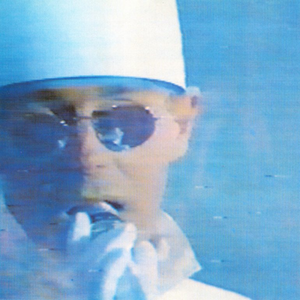
Disco 2 is the second remix album by English synth-pop duo Pet Shop Boys, released on 12 September 1994 by Parlophone. It consists of remixes of songs from the duo's albums Behaviour (1990) and Very (1993), as well as B-sides from the time.

Leftism is the debut studio album by English electronic music duo Leftfield, released in 1995 on Columbia Records. It contained a mixture of new tracks along with reworked versions of previous Leftfield singles. The album contains guest spots from musicians not associated with dance music at the time such as John Lydon from Public Image Ltd. and Toni Halliday from Curve. The album was described as progressive house, although some journalists found that label too limiting, suggesting the album incorporated many genres. After completing the album, the duo initially were not pleased with it.
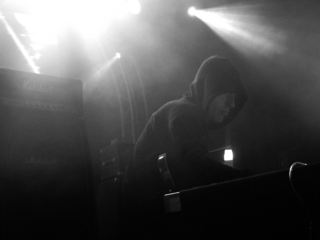
Final is a project of English musician Justin Broadrick, creator of the band Godflesh, which he started when he was 13 years old. Unlike Godflesh, Final is primarily electronic in nature, taking on a space-like, dark ambient sound.

Martin Glover, better known by his stage name Youth, is a British record producer and musician, best known as a founding member and bassist of the rock band Killing Joke. He is also a member of the Fireman, along with Paul McCartney.

"No Limit" is a song recorded by Belgian/Dutch Eurodance group 2 Unlimited, released in January 1993 by Byte, ZYX and PWL. It was their fifth single in total and the first to be released from their second album, No Limits! (1993). Co-written by the group's Ray Slijngaard and Anita Dels, the song became one of their most commercially successful singles, especially in Europe, reaching the number-one spot in 35 countries and the top 10 in several others. Like previous releases, the UK version of the single removed all of the raps from Slijngaard, leaving just Dels' vocals. One word from the rap was kept, the word 'Techno' which was looped and repeated during the middle of the song, turning the line into "Techno! Techno! Techno! Techno!" and giving the song an extra vocal hook. Its accompanying music video was directed by Nick Burgess-Jones and received heavy rotation on MTV Europe.

Wackies is an American independent record label specialized in reggae and dub music. Lloyd Barnes founded the label in 1976, and it is possibly the longest-running American recording studio for reggae.

Moritz von Oswald is a German record producer and percussionist from Hamburg and based in Berlin. He is a co-founder of the production duo and record label Basic Channel. He has collaborated with Juan Atkins, Carl Craig, and Nils Petter Molvær. He also leads the Moritz von Oswald Trio, which has featured musicians such as Vladislav Delay, Tony Allen, and Laurel Halo. The Stranger called him "one of the master architects of dub techno".
Founded by Moritz Von Oswald and Mark Ernestus of Rhythm and Sound, Basic Replay is an imprint in the Basic Channel record label family, focusing primarily on reissues of reggae albums and singles. Related to the Wackies reissue campaign, though not restricted to product from one label, Basic Replay releases are packaged to reflect the artwork associated with the originals, with 7" and 12" vinyl singles and LPs typically bearing the artwork, logos, and fonts found on the out-of-print releases. As much of the material has never before been available on compact disc, the CD reissues often recreate the aesthetics of the original packaging with minimal cosmetic changes.

"Release the Pressure" is the third single by the English electronic duo Leftfield and the first to involve Paul Daley with writing duties after he joined the group. The song was released exclusively on 12" in 1992. Unlike previous releases that had been released on the Outer Rhythm record label, Leftfield had now officially split from Outer Rhythm. Major labels had offered them deals but neither member wanted to give up creative control to any major company. They formed the Hard Hands record label with "Release the Pressure" being the label's first official release. The song featured reggae singer Earl Sixteen on vocals, with a lyric taken from his 1981 single "Trial and Crosses". "Release the Pressure" made the top 20 in the UK charts and featured at number one in the Melody Maker "Stone Free Chart of the Year". It was used in Telefónica O2 and O2 (UK) commercials during its first year.

DJ-Kicks: Chicken Lips is a DJ mix album, mixed by Chicken Lips. It was released on 3 November 2003 on the Studio !K7 independent record label as part of the DJ-Kicks series.
Chain Reaction was a German record label founded in 1995 by Basic Channel members Moritz Von Oswald and Mark Ernestus. The label's output consisted of the extended friends and family of the Basic Channel duo, which centered on the Hard Wax record store in Berlin.
Techno is a genre of electronic dance music which is generally produced for use in a continuous DJ set, with tempos being in the range from 120 to 150 beats per minute (BPM). The central rhythm is typically in common time (4/4) and often characterized by a repetitive four on the floor beat. Artists may use electronic instruments such as drum machines, sequencers, and synthesizers, as well as digital audio workstations. Drum machines from the 1980s such as Roland's TR-808 and TR-909 are highly prized, and software emulations of such retro instruments are popular.
Dub techno is a subgenre of electronic music that originated in the early 1990s, blending the repetitive, minimal structures of techno with the echo-laden, spacey production techniques of dub music. It is notable for its deep, atmospheric soundscapes, layers of elaborate basslines, slowly developing musical phrases featuring heavy delay and reverb effects. Vocals are either absent, or inspired by dub and ambient music.
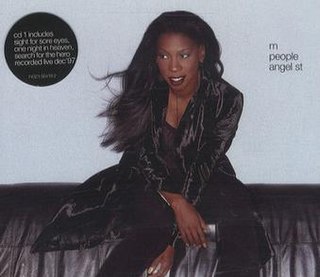
"Angel St" is the thirteenth single by British band M People, released on 16 March 1998 by M People Records. It was the third and final single from the band's fourth album, Fresco (1997). The song was written by Mike Pickering, Paul Heard and Heather Small and produced by M People and Chris Lord-Alge. It peaked at number eight on UK Singles Chart and number 24 on the Eurochart Hot 100.
Sampledelia is sample-based music that uses samplers or similar technology to expand upon the recording methods of 1960s psychedelia. Sampledelia features "disorienting, perception-warping" manipulations of audio samples or found sounds via techniques such as chopping, looping or stretching. Sampladelic techniques have been applied prominently in styles of electronic music and hip hop, such as trip hop, jungle, post-rock, and plunderphonics.
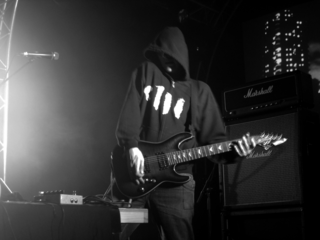
JK Flesh is a moniker of English musician Justin Broadrick employed for his solo work within electronic music. Broadrick's usage of the title spans back to his work in the 1990s with Kevin Martin in Techno Animal, but he first released a solo studio album as JK Flesh in 2012. Unlike Broadrick's most well-known projects, Godflesh and Jesu, his work as JK Flesh is electronic and lacks metal riffs. Over the years, the project has shifted into a more minimal and dub sound while retaining its industrial influences.
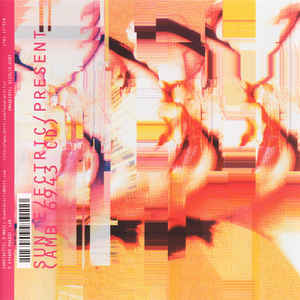
Present is the third album by German techno duo Sun Electric, released in November 1996 by Belgian label Apollo Records. The duo's first full-length studio album for the label, the album is a return to Sun Electric's more beat-oriented material and incorporates styles of dub, jungle, IDM, breakbeat and downtempo. The album artwork by The Designer's Republic features a manipulated image similar to artworks of Madonna, reflecting the melancholic, fractured sound of the album. Music critics greeted Present favourably, praising its inventive style, and some have since recognised the record as overlooked.
















